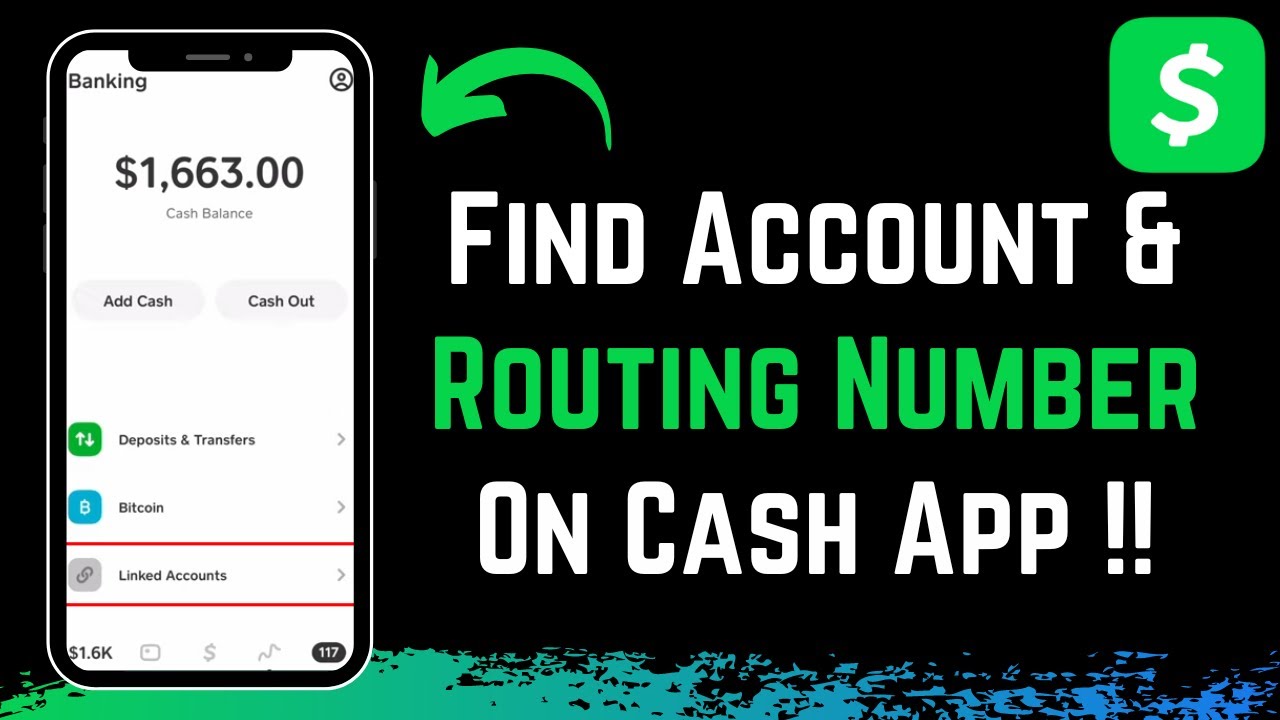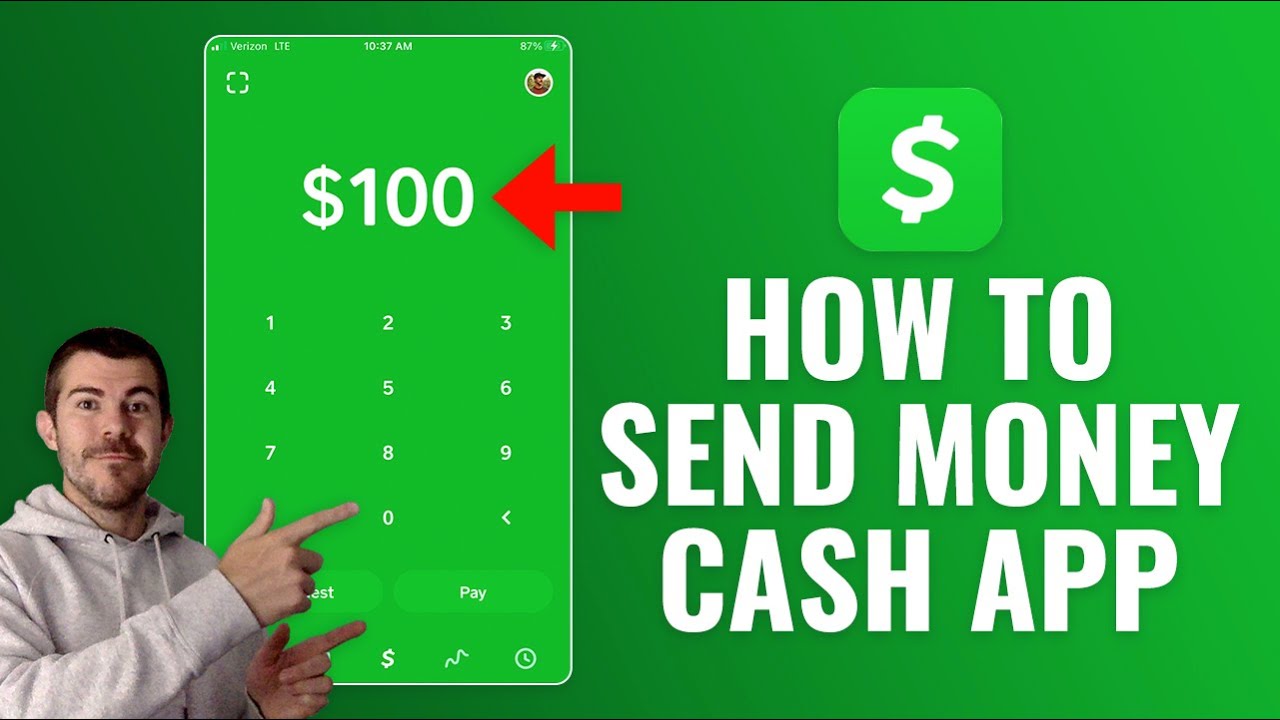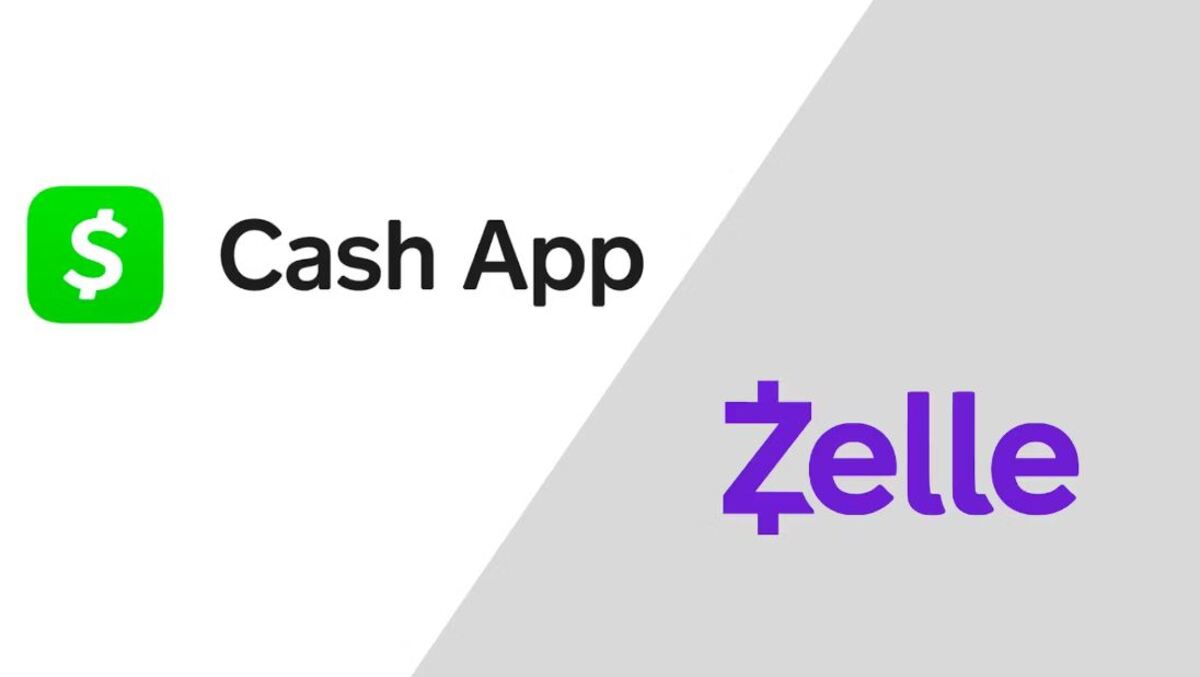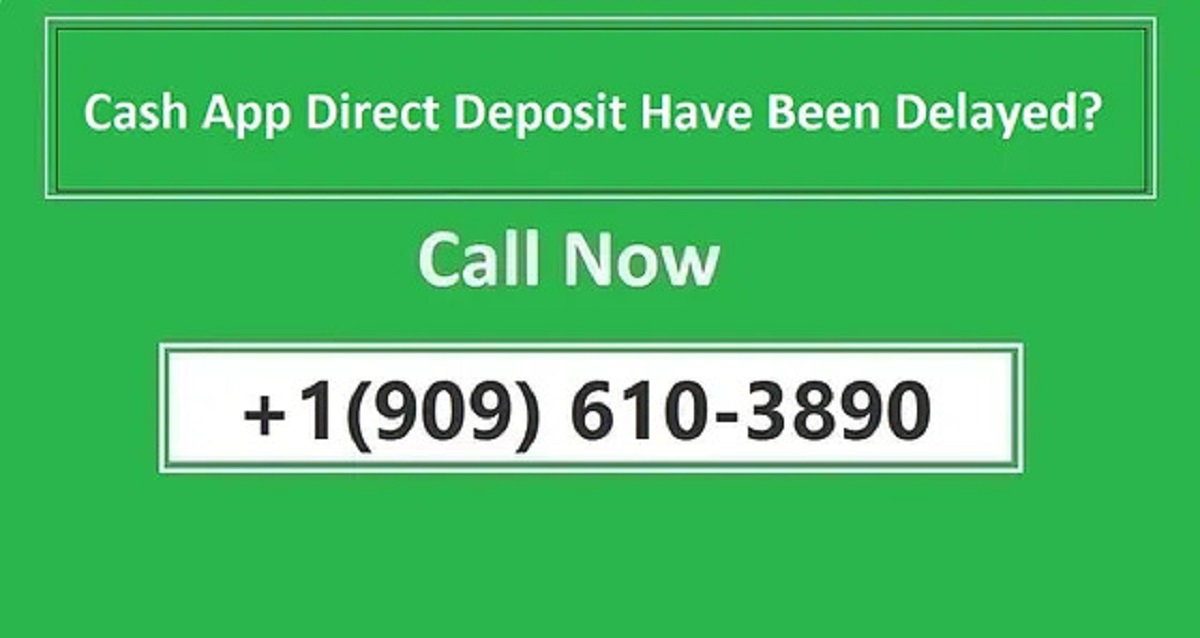Introduction
Welcome to our article on Cash App, a popular mobile payment service that allows users to send and receive money easily. If you’re new to Cash App or are considering using it, you might be wondering about the banking aspect of this app. In this article, we’ll explore the connection between Cash App and banks to give you a better understanding of how it works.
Cash App, developed by Square Inc., is a peer-to-peer payment service that enables users to send and receive money via their mobile devices. With its user-friendly interface and convenient features, it has gained significant popularity among individuals and businesses alike.
Now, let’s address one of the most frequently asked questions: Is Cash App affiliated with a bank? The answer is yes. Cash App is indeed associated with a bank, which plays a crucial role in facilitating the transactions carried out on the platform. Understanding this relationship is important as it provides insight into the security, reliability, and functionality of the app.
In the following sections, we will delve deeper into the specific bank associated with Cash App, how you can link your bank account to the app, and the benefits of doing so. Additionally, we’ll address what to do if your bank is not currently available on Cash App.
So, if you’re ready to learn more about the banking side of Cash App, let’s dive in!
How does Cash App work?
Cash App operates by utilizing a combination of digital wallets and banking services to facilitate seamless money transfers. To get started, users need to download the Cash App mobile application from the App Store or Google Play Store and create an account. Once the account is set up, users can link their bank accounts or debit cards to their Cash App profiles.
When a user wants to send money to someone, they simply enter the recipient’s Cashtag (a unique username associated with their Cash App account), phone number, or email address. After entering the desired amount, users can hit the “Pay” button to initiate the transaction. The recipient will receive a notification and can choose to accept the payment, which will then be instantly transferred to their Cash App balance.
One of the distinctive features of Cash App is the Cash Card, a physical debit card linked to the user’s Cash App account. This card allows users to make purchases online and in physical stores, as well as withdraw funds from ATMs. The Cash Card functions like a traditional debit card, utilizing the funds available in the user’s Cash App balance or linked bank account.
In addition to sending and receiving money, Cash App also offers other convenient features. Users can invest in stocks and cryptocurrency directly through the app, enabling them to grow their wealth and explore alternative investment options. Cash App also supports direct deposits, allowing users to have their paychecks deposited directly into their Cash App balance.
Furthermore, Cash App provides a platform for businesses to accept payments from customers. Small businesses can create a unique Cash App username for their business and receive payments from customers by simply providing their Cashtag or scanning a QR code.
Overall, Cash App simplifies money transfers and provides a wide array of features to enhance the financial experience of its users. Now that we’ve covered how Cash App works, let’s delve into the connection between Cash App and banks.
Is Cash App affiliated with a bank?
Yes, Cash App is indeed affiliated with a bank. In fact, its association with a bank is an essential component of its operations. Cash App leverages the banking infrastructure to securely process and facilitate the money transactions carried out on its platform.
The bank associated with Cash App is Lincoln Savings Bank, which is chartered under the laws of the United States and operates as a member of the Federal Deposit Insurance Corporation (FDIC). The partnership between Cash App and Lincoln Savings Bank ensures that users’ funds are safely stored and protected.
With Lincoln Savings Bank’s involvement, Cash App can provide several benefits to its users. First and foremost, it adds an extra layer of security. As a part of the banking industry, Cash App follows stringent regulations and security protocols to safeguard users’ financial information and prevent fraudulent activities.
Furthermore, Cash App users can enjoy the added advantage of FDIC insurance coverage on their funds. The FDIC is an independent federal agency that protects depositors in the event of bank failures. Therefore, in the unlikely event of Lincoln Savings Bank facing financial difficulties, funds held in Cash App accounts may be protected up to the maximum limit provided by the FDIC (currently $250,000 per depositor).
It’s important to note that while Cash App works in collaboration with Lincoln Savings Bank, users’ funds are held in a separate account rather than commingled with the bank’s own funds. This separation ensures that users’ funds are distinct and can be easily accessed and managed through the Cash App platform.
Now that we’ve established the affiliation between Cash App and a bank, let’s explore how users can link their own bank accounts to Cash App for a seamless financial experience.
Which bank is associated with Cash App?
The bank associated with Cash App is Lincoln Savings Bank. As a chartered bank operating under the laws of the United States, Lincoln Savings Bank serves as the banking partner for Cash App, providing the necessary infrastructure for processing and facilitating the monetary transactions carried out on the platform.
Lincoln Savings Bank, which is a member of the Federal Deposit Insurance Corporation (FDIC), ensures that Cash App users’ funds are securely stored and protected. This affiliation with a reputable bank enhances the credibility and trustworthiness of the Cash App service.
By partnering with Lincoln Savings Bank, Cash App is able to provide its users with a range of benefits. These include the security measures implemented by the bank to protect users’ financial information and prevent unauthorized access. Additionally, the association with a chartered bank ensures that Cash App complies with regulatory requirements and adheres to industry standards.
One significant advantage of Lincoln Savings Bank’s involvement is the FDIC insurance coverage. The FDIC is an independent federal agency that provides deposit insurance to protect depositors in case of bank failures. Cash App users can benefit from the FDIC insurance coverage on their funds held in their Cash App accounts. This means that in the unlikely event of Lincoln Savings Bank encountering financial difficulties, users’ funds may be protected up to the maximum limit provided by the FDIC, which is currently $250,000 per depositor.
It’s important to note that the bank association with Cash App ensures that users’ funds are held in separate accounts rather than commingled with the bank’s own funds. This separation of funds allows for easy management and access through the Cash App platform.
Now that we know which bank is associated with Cash App, let’s explore the process of linking your own bank account to Cash App for convenient and seamless transactions.
Can I link any bank account to Cash App?
Yes, you can link most bank accounts to Cash App, allowing you to easily transfer funds between your bank and your Cash App balance. Cash App supports linking various types of bank accounts, including checking accounts and savings accounts, as well as most major banks in the United States.
When you set up your Cash App account, you will have the option to link your bank account during the registration process or at a later stage. To link your bank account, you will need to provide your bank’s routing number and your account number. These details can typically be found on your checks or by contacting your bank directly.
It is important to note that while Cash App supports a wide range of banks, there may be certain banks that are not currently available for linking on the platform. In such cases, you may want to contact Cash App’s customer support to inquire about the availability of your particular bank.
Once you have successfully linked your bank account to Cash App, you can easily initiate transfers between your bank and your Cash App balance. This enables you to conveniently add funds to your Cash App account or transfer money back to your bank whenever needed.
It’s worth mentioning that when linking your bank account to Cash App, it’s important to ensure that you are providing accurate and up-to-date information. This will help prevent any potential issues with transactions and ensure a smooth experience when using the app.
Now that you know you can link most bank accounts to Cash App, let’s explore how to go about linking your own bank account to Cash App.
How to link your bank account to Cash App
Linking your bank account to Cash App is a straightforward process that can be done directly from the app. Here’s a step-by-step guide on how to link your bank account:
- Open the Cash App mobile application on your device.
- Tap on the profile icon located in the top left corner of the screen to access your account settings.
- Scroll down to find the “Funds” section and select “Add Bank”.
- You will be presented with two options: “Add Bank” or “Add Card”. Choose “Add Bank” to proceed with linking your bank account.
- On the next screen, you will be asked to provide your bank’s routing number and your account number. You can find these details on your checks or by contacting your bank directly.
- After entering your bank account details, review the information to ensure accuracy, and tap “Next” to continue.
- Cash App will then send two small deposits (usually less than $1) to your bank account as a verification process. Note that it may take 1-2 business days for the deposits to show up in your bank account.
- Once you receive the two deposits, return to the “Funds” section in Cash App and select “Verify” next to your linked bank account.
- Enter the two small deposit amounts that were sent to your bank account and tap “Next”. This step confirms that you are the account holder of the linked bank account.
- Once the verification is complete, your bank account will be successfully linked to Cash App, and you can begin using it for transactions.
It’s important to note that when linking your bank account, ensure that you have sufficient funds in your bank account to cover any potential transactions or transfers. Insufficient funds may result in failed transactions and could incur fees from both Cash App and your bank.
Now that you know how to link your bank account to Cash App, let’s explore the benefits of having your bank account linked to the app.
Benefits of linking a bank account to Cash App
Linking your bank account to Cash App offers several benefits that enhance the convenience and functionality of the app. Here are some advantages of having your bank account linked:
- Easy transfers: When your bank account is linked to Cash App, you can easily transfer funds between your bank and your Cash App balance. This allows for seamless and instant transactions, whether you need to add funds to your Cash App account or transfer money back to your bank.
- Direct deposit: By linking your bank account, you can set up direct deposit with Cash App. This enables you to have your paychecks, government benefits, or any other recurring deposits automatically deposited into your Cash App balance. This provides quick and convenient access to your funds.
- Cash Card functionality: When you link your bank account to Cash App, you gain access to the Cash Card feature. The Cash Card is a physical debit card that is linked to your Cash App balance. You can use it to make purchases both online and in physical stores, as well as withdraw cash from ATMs.
- Investing and cryptocurrency: Having your bank account linked to Cash App allows you to easily invest in stocks and cryptocurrency. Cash App offers a user-friendly platform that enables you to buy and sell stocks or invest in popular cryptocurrencies like Bitcoin. Linking your bank account provides a seamless way to fund your investment activities.
- Budgeting and spending analysis: When you link your bank account, Cash App gives you access to spending insights and budgeting tools. You can view detailed transaction histories, categorize your expenses, and gain insights into your spending habits. This can be helpful for managing your finances and staying on top of your budget.
Overall, linking your bank account to Cash App expands the functionality of the app and provides a range of features and benefits that streamline your financial activities. From easy transfers to direct deposits and investment opportunities, having your bank account linked enhances the overall user experience on Cash App.
Now that we’ve explored the benefits of linking your bank account, let’s address what to do if your bank is not available on Cash App.
What if my bank is not available on Cash App?
If your bank is not currently available for linking on Cash App, there are a few options you can consider to still utilize the app’s services:
- Contact Cash App support: If you don’t see your bank listed when attempting to link your account, it’s worth reaching out to Cash App’s customer support. They may be able to provide further information about whether your bank will be supported in the future or suggest alternative methods for linking your bank account.
- Use a supported debit card: If your bank is not available for linking, you can still add funds to your Cash App balance by using a supported debit card. Cash App accepts most major debit cards, allowing you to make payments and transfers using the available funds on your card.
- Transfer funds from another bank: If you have another bank account that is supported by Cash App, you can transfer funds from that account to your Cash App balance. This can be done by linking the supported bank account and initiating a transfer to your Cash App account. Once the funds are in your Cash App balance, you can use them as desired.
- Consider alternative payment apps: If Cash App doesn’t support your bank, you may want to explore other payment apps that have a wider range of banking partnerships. Apps like Venmo, PayPal, or Zelle may work with your bank, allowing you to transfer money conveniently.
It’s important to stay informed about any updates or changes to Cash App’s list of supported banks. The availability of banks may change over time, so periodically checking the app or reaching out to customer support can provide you with the most up-to-date information.
Remember, even if your specific bank is not available on Cash App, there are alternative methods to utilize the app’s services and enjoy the benefits it provides for easy money transfers and financial management.
Now that we’ve covered what to do if your bank is not available on Cash App, let’s wrap up our discussion.
Conclusion
In this article, we explored the connection between Cash App and banks to better understand how this popular mobile payment service operates. We learned that Cash App is affiliated with Lincoln Savings Bank, a chartered bank in the United States that provides the necessary infrastructure for securely processing transactions on the platform.
By linking your bank account to Cash App, you can enjoy several benefits, including easy transfers between your bank and Cash App balance, the convenience of direct deposit, the functionality of the Cash Card, and the opportunity to invest in stocks and cryptocurrency through the app. Additionally, linking your bank account provides access to budgeting tools and spending insights to help you manage your finances effectively.
If your bank is not currently available on Cash App, you have options such as contacting customer support, using a supported debit card, or transferring funds from another bank. Exploring alternative payment apps may also be a solution if your specific bank is not supported.
Cash App offers a secure and convenient way to send and receive money, manage your finances, and access additional features like investing and the Cash Card. With its affiliation with a bank like Lincoln Savings Bank, Cash App provides users with the trust, reliability, and benefits associated with traditional banking institutions.
Whether you’re a new Cash App user or considering using the app in the future, understanding the banking aspect of Cash App is crucial for making informed financial decisions and maximizing the app’s features. Now that you have a better understanding of the connection between Cash App and banks, you can confidently navigate the world of digital payments and utilize the app to its full potential.

























